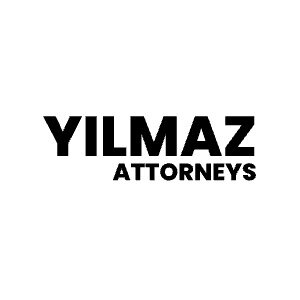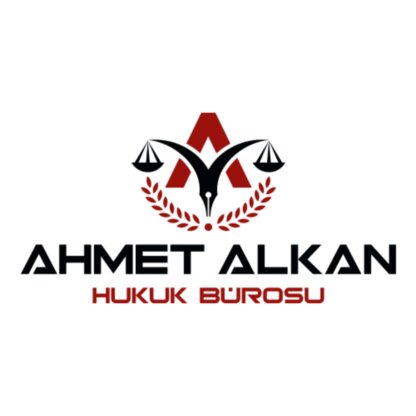Best Juvenile Law Lawyers in Kepez
Share your needs with us, get contacted by law firms.
Free. Takes 2 min.
List of the best lawyers in Kepez, Turkey

Antalya Attorney /Адвокат Mert Veysel Yilmaz - Yilmaz Attorneys Law Firm
15 minutes Free ConsultationAbout Juvenile Law in Kepez, Turkey
Juvenile Law in Kepez, Turkey, focuses on the legal issues surrounding minors-children and adolescents under the age of 18-who become involved in the justice system, whether as offenders, victims, or those in need of protection. The Turkish legal system, including that in Kepez, Antalya Province, takes a distinctive approach to handling juvenile matters, aiming to provide guidance, protection, rehabilitation, and reformation rather than punishment. Special juvenile courts, criminal and protection measures, and designated social services work together to safeguard the best interests of minors while ensuring compliance with national and international standards.
Why You May Need a Lawyer
A lawyer with expertise in Juvenile Law can be crucial in various situations that involve minors and legal matters in Kepez, Turkey. People typically seek juvenile legal advice for:
- Defense or representation when a minor is accused of committing an offense
- Support during police investigations or court proceedings involving children
- Cases of alleged child abuse, neglect, or exploitation
- Advice on child custody and guardianship disputes
- Seeking protective and care measures for at-risk children
- Matters relating to the child welfare system, such as foster care, adoption, or institutionalization
- Enforcement of non-custodial penalties and rehabilitation efforts
- Appeals against legal decisions concerning minors
Local Laws Overview
In Kepez, as in the rest of Turkey, Juvenile Law is governed mainly by the Turkish Child Protection Law (Law No. 5395) and the Turkish Penal Code. Important elements include:
- Age of Criminal Responsibility: Children under 12 cannot be held criminally responsible. Those aged 12-15 have limited responsibility, and courts must consider their capacity to understand the nature of the offense. Children aged 15-18 are generally treated as minors in legal proceedings.
- Juvenile Courts: Specialized juvenile courts handle cases involving minors. These courts have judges, prosecutors, and staff trained in child development and psychology.
- Protective Measures: Courts can apply protective and supportive measures such as family counseling, education support, or placement in care institutions.
- Alternative Sanctions: Preference is given to non-custodial penalties and rehabilitation rather than detention, focusing on reformation and reintegration.
- Privacy and Protection: Juvenile proceedings are generally not public; the privacy of the child is strictly protected during all legal processes.
- Role of Social Services: Social workers, psychologists, and experts participate in investigations and court hearings involving juveniles.
Frequently Asked Questions
What age is considered a juvenile in Kepez, Turkey?
A juvenile is anyone under the age of 18 according to Turkish law. Different legal provisions may apply depending on the exact age and capacity of the child.
What happens if a minor is accused of a crime?
If a minor is accused of a crime, the case is handled by the Juvenile Courts. Special rules apply regarding interrogation, detention, and trial, focusing on the child's best interests, privacy, and rehabilitation.
Can minors be arrested or detained in Kepez?
Detaining minors is permissible but considered a last resort. The law emphasizes alternative, non-custodial measures wherever possible, except in cases involving severe offenses.
Are parents or guardians involved in legal proceedings?
Yes, parents or guardians are generally involved in all stages of the proceedings. They are notified of hearings and often required to participate in legal processes concerning the minor.
Is legal representation mandatory for minors?
Yes, minors are required to have legal representation in criminal proceedings. If the family cannot afford a lawyer, the court appoints one at no cost.
What support services exist for juveniles in legal trouble?
Social workers, psychologists, and probation officers are present to assist and assess the needs of minors. Rehabilitation programs and counseling are also common, aiming for social reintegration.
What should I do if I suspect a child is at risk?
Contact local law enforcement, the Social Services Directorate, or a child protection agency immediately. Early reporting ensures timely intervention and protection of the child.
How are juvenile records handled?
Juvenile court records are confidential and not publicly accessible. Disclosure is highly restricted to protect the child’s future prospects.
Are hearings involving minors public?
No, juvenile court hearings are held behind closed doors to maintain the privacy and dignity of the minor.
Can a juvenile sentence be appealed?
Yes, as with adult criminal cases, decisions made by juvenile courts can be appealed to higher courts for review.
Additional Resources
If you or someone you know needs assistance in Kepez, consider reaching out to:
- Local Bar Association in Antalya: Offers referrals and legal aid for juvenile cases.
- Kepez Social Services Directorate: Handles child protection, welfare, and support services.
- Ministry of Family and Social Services: Provides guidance and social programs related to children’s rights and welfare.
- Juvenile Police Departments: Special police units focused on the safety and legal protection of minors.
- Legal Aid Centers: Provide free or low-cost legal advice for families unable to afford private counsel.
Next Steps
If you need legal assistance related to Juvenile Law in Kepez, Turkey:
- Identify if the issue involves a minor as an offender, victim, or in need of protection.
- Contact a lawyer experienced in Juvenile Law as soon as possible. In urgent situations, the local Bar Association or Social Services Directorate can provide immediate guidance or appoint legal representation.
- Gather any relevant documents (IDs, reports, notices) and information about the case before meeting with your lawyer for an efficient consultation.
- Follow legal instructions carefully and prioritize the privacy and best interests of the minor throughout the proceedings.
- Stay informed about your rights and responsibilities, and make use of available support services for counseling, social support, and rehabilitation if needed.
Lawzana helps you find the best lawyers and law firms in Kepez through a curated and pre-screened list of qualified legal professionals. Our platform offers rankings and detailed profiles of attorneys and law firms, allowing you to compare based on practice areas, including Juvenile Law, experience, and client feedback.
Each profile includes a description of the firm's areas of practice, client reviews, team members and partners, year of establishment, spoken languages, office locations, contact information, social media presence, and any published articles or resources. Most firms on our platform speak English and are experienced in both local and international legal matters.
Get a quote from top-rated law firms in Kepez, Turkey — quickly, securely, and without unnecessary hassle.
Disclaimer:
The information provided on this page is for general informational purposes only and does not constitute legal advice. While we strive to ensure the accuracy and relevance of the content, legal information may change over time, and interpretations of the law can vary. You should always consult with a qualified legal professional for advice specific to your situation.
We disclaim all liability for actions taken or not taken based on the content of this page. If you believe any information is incorrect or outdated, please contact us, and we will review and update it where appropriate.








